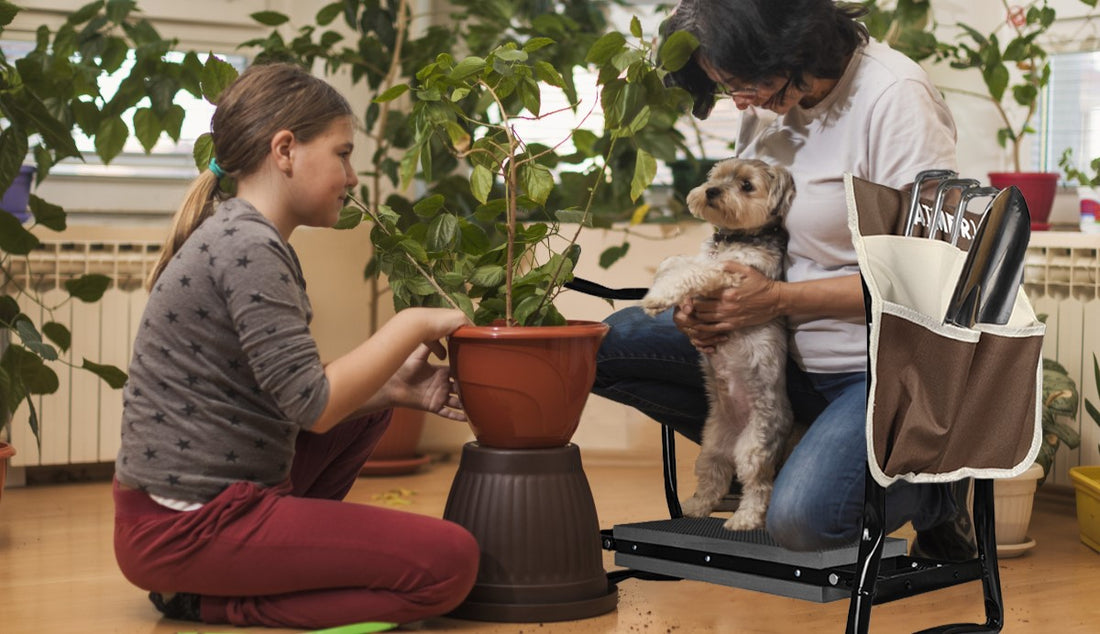
Gardening has several benefits for seniors?
Share
A recent study outlining several benefits of gardening for older adults:
1.Pain Relief
Do you know what it's like to take a hot shower after a strenuous workout? the kind of feeling older adults, especially those with arthritis and joint pain, experience when gardening. Being in nature reduces awareness of unpleasant stimuli (i.e. pain). The risk of dementia increases with age as people become sedentary, so staying active is so important ! Breathing in fresh air and exercising in a healing garden is an effective and enjoyable way to get your body moving while minimizing pain.
2.Improve Concentration Levels
Like it or not, gardening requires patience. Routine gardening tasks improve concentration levels in older adults. Planting requires concentration, watering is a routine, and weeding and deheading takes time. This cognitive process has been shown to enhance memory and reduce disorientation in older adults.
3.Reduce stress
When you’re stressed, sometimes all you need is a walk nearby to relax. Being away from home has been proven to reduce anxiety and improve mood, so it should be the first choice during difficult times. That's why more and more nursing homes are providing residents with safe outdoor spaces rather than keeping them indoors.
A study that monitored blood pressure, concentration, and mood after a stressful event had one group read indoors while the other gardened outdoors. The gardening group reported a happier mood and lower blood pressure, suggesting gardening may just be a stress-relieving trick. But are we really surprised?
4.Reduce restlessness and increase independence
As we mentioned above, gardening can reduce stress while also reducing restlessness and increasing independence. Enjoying the shade under the green and strolling in the backyard can effectively distract attention and reduce restlessness. Think and understand independently in the face of plant growth issues that exercise and increase independence.
5.Reduce the Falling
As we age, our bodies don't bounce back like when we were younger. Research shows that patients with dementia are 75% more likely to fall and injure themselves, which is where gardening can help. By planting, plowing, raking and weeding in the yard, older adults can exercise their muscles while subconsciously working their balance. This, in turn, makes falls less likely. One study even showed that people with dementia had a 30% fall off after gardening.


